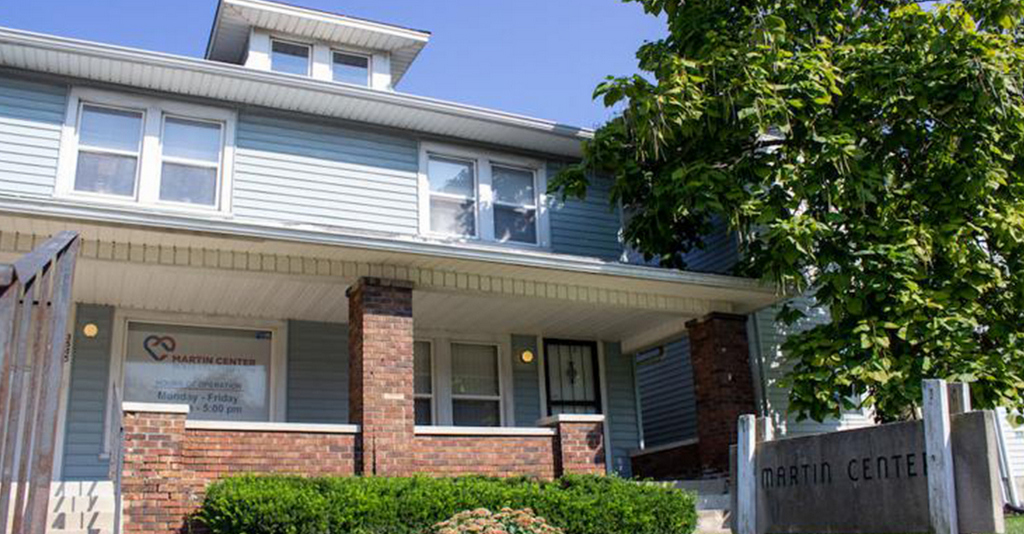[ad_1]
By Tyler Fenwick (The Indianapolis Recorder/BPUSA)
Julie Daniels lucked out when her mother took her to the pediatrician. All of a sudden, Daniels couldn’t bear any weight as a 1-year-old, even after learning how to walk. The pediatrician was a hematologist and recognized the signs he saw. He tested Daniels, and sure enough, she was diagnosed with sickle cell disease.
Daniels has Hemoglobin SB+ (beta) thalassemia, to be exact. It’s one of the four main types of sickle cell disease. The disease affects hemoglobin, the protein in red blood cells that carries oxygen to different parts of the body. Symptoms can include anemia, repeated infections and chronic pain.

It’s the pain that has affected Daniels’ life the most. She stopped working in 2015 because the pain was so bad. She’s on disability now, but she said the pain seems to come more often. The worst days — when the pain becomes overpowering and she can’t do anything — can happen as often as three times a week.
Couple that with fatigue, and it’s like your body “just shuts down on you,” Daniels said, and a nap isn’t going to make it any better.
Growing up in Fort Wayne, said she felt “very alone.” She had a cousin with the same disease, but he lived in Maryland. Daniels, who went to Purdue University and earned her master’s degree in Indianapolis, started going to the Martin Center Sickle Cell Initiative in 2010. She had never heard of what was then a 41-year-old organization. There wasn’t anything like it around the state.
This year, the Martin Center is celebrating its 50th anniversary. That’s 50 years of supporting a community that for so long has been ignored and stigmatized. There will be a celebration with dinner, music and a silent auction at 6:30 p.m. Sept. 20 at the Willows on Westfield. Tickets are $75 at themartincenter.org.
Go back to 1969, when Father Boniface Hardin and Dr. Raymond Pierce founded the center, and it’s clear why this organization was needed.
“You would find that there really wasn’t much information at all and hardly any interest in sickle cell disease,” said Gary Gibson, president and CEO of the Martin Center, “because it was a disease that seems to affect only Black people, and people of color didn’t matter. It didn’t get the attention that it should get.”
The Centers for Disease Control and Prevention (CDC) estimates that about 100,000 Americans have sickle cell disease. The disease occurs in one out of every 365 Black or African American births, and about 1 in 13 Black or African American babies is born with sickle cell trait, meaning the baby inherited the gene from one parent but likely won’t have any of the symptoms of sickle cell disease.
Daniels knew her husband didn’t have the gene, so they could only pass along the trait to their daughter. Daniels said they talk with her about the possibility of having a partner who also has the trait and potentially passing the disease to her child. When both parents have the trait, there’s a 25% chance their child will have the disease, according to the CDC.
This is part of what the Martin Center has been doing: educating people who have the disease and trait. The organization has programs that not only teach patients about the disease, but also provide services and support such as a food pantry, support groups and financial assistance.
Frank Lloyd, a Martin Center board member and retired physician, understands why it’s important for African Americans to have this kind of intimate meeting space to talk about a disease that many others know so little about.
During his time at IU Health Methodist Hospital, Lloyd saw sickle cell patients whose pain was discounted by other physicians. It’s a well-documented phenomenon in medicine, where White doctors have false beliefs about biological differences between their White and Black patients, leading them to think their Black patients don’t feel as much pain.
The Martin Center is a place where patients can drop their guard and be with others who are also dealing with an invisible disease that doesn’t get as much attention — or funding — as other conditions that are less common.
Gibson, whose wife died from complications with sickle cell disease in 1989, said the next step for the Martin Center hopefully involves expanding. He would like to get up to Gary and Fort Wayne, places that need these kinds of services but don’t have them to the same scale.
He saw what sickle cell disease did to his wife and sees what it’s doing to patients now every day.
“It’s not fair,” Gibson said. “Those who have it didn’t ask for it, and they didn’t do anything to cause it. To me, that’s just not fair.”
Contact staff writer Tyler Fenwick at 317-762-7853. Follow him on Twitter @Ty_Fenwick.
This article originally appeared in The Indianapolis Recorder.
[ad_2]
Source link

